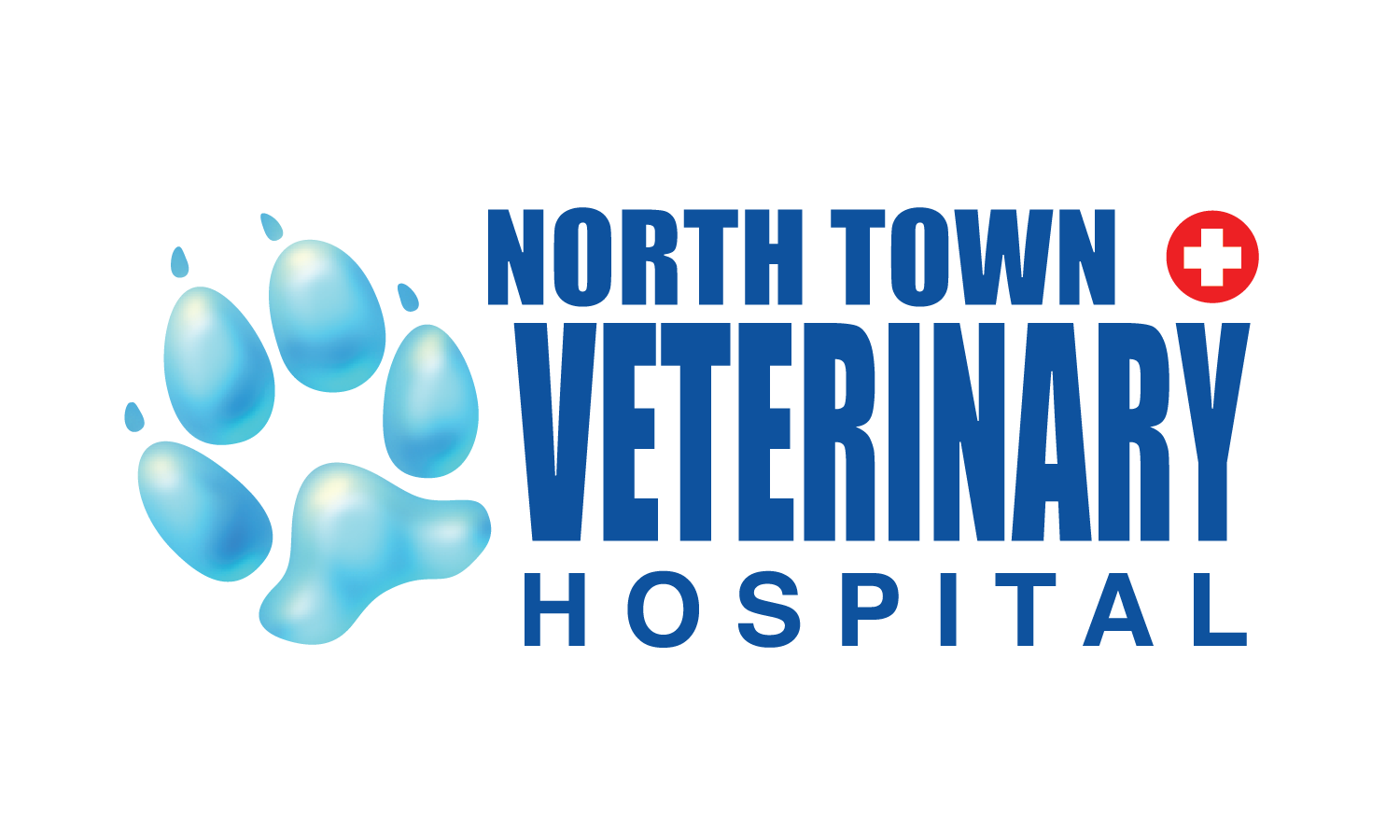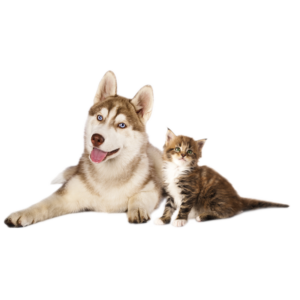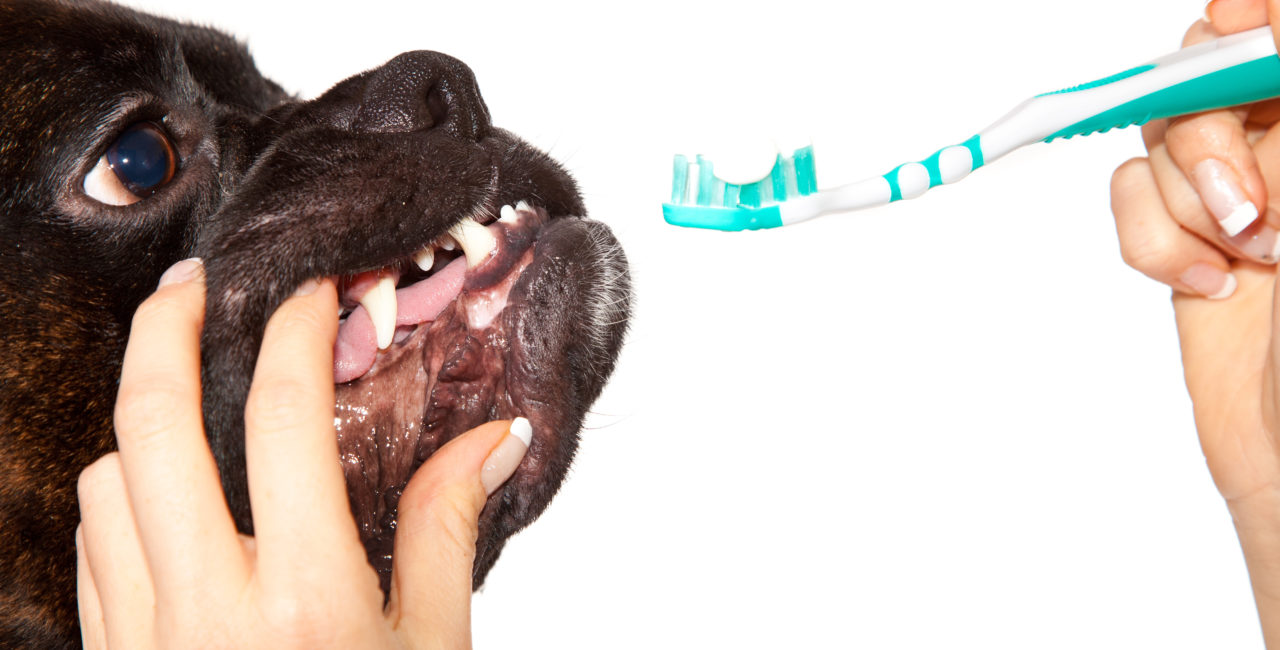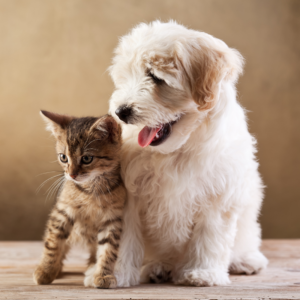It’s time to let your pets shine in the New Year; National Pet Dental Health Month is happening!
Join us for our Free Dental Seminar on Tuesday, February 17th at 7pm. We will be providing the most current information on dental care so that you can make the best choices for your pet! Light refreshments will be served and you will receive a complimentary take him bag. Reserve your spot by calling 905-451-200!
Pet dentistry has become an established aspect of good veterinary care and for good reason: One of the best things a pet parent can do to ensure the overall health of their pet is to do routine checking of the teeth, gums and oral cavity. Look at the two photos below. You can see the before photo shows an unhealthy state of oral hygiene and the after… well you can see is a huge improvement!
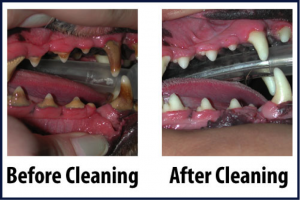
What Veterinarians Can Do
For this example we will use a common case: A seven year old dog. What if a seven-year-old dog was here at North Town for annual vaccinations and during their physical exam the veterinarian notices plaque on their teeth and inflamed gums? If left to its own evolution, the dog’s gingivitis and plaque would worsen. The dog would eventually develop cavities in the teeth, gingival recession, bacterial contamination, and eventually lose teeth and gain root exposure. It probably would hurt, too. So the veterinarian would suggest an oral cleaning. Typically, the dog would be admitted in the morning after an overnight fast from food and water. If the routine blood tests are normal and the dog is judged to be a good candidate for anesthesia and dentistry, we can begin.
There are various pre-anesthetic sedation that are utilized, depending on the dog’s size and the veterinarian’s preference. After the dog is relaxed, general anesthesia will be applied. This too can be in various forms. In this case, we will discuss using an endotracheal tube, which is regulated throughout the procedure so that work can be done painlessly and still have the patient at a safe level of anesthesia.
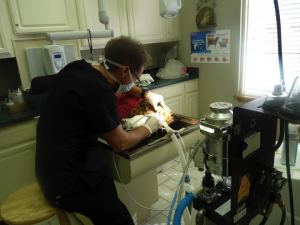
An ultrasonic instrument is used to separate the plaque from the teeth. It sprays cooling water and works its cleaning magic on the teeth at the same time. After the teeth are “scaled” a light buffing is done to polish the teeth.
Often, an animal will need a root canal procedure performed or require a tooth to be capped. While many pet owners do not expect their pet to have these services performed, they can and should be done in certain circumstances. Gingival plastic surgery can be done, as well. Sometimes the best thing to do is to remove a severely damaged or markedly loose tooth. Once the gum heals, the cat or dog seldom shows any signs of missing the offending tooth or teeth.
As the pet awakens, the endotracheal tube is removed and antibiotics are prepared for administration at home for 7 to 10 days. Further instructions are given to the owner as to beneficial oral care for the dog. Hopefully they won’t need further dentistry, but there are some patients who need ultrasonic cleaning almost every year.
Be sure to take a good look in your dog’s (or cat’s) mouth and inspect it for any foul looking or smelling characteristics. If you are suspicious that something isn’t right, make an appointment with your veterinarian for a dental checkup. Remember: bad smelling breath is not normal in pets.
Both you and your pet will feel better when you make oral hygiene is a part of your cat or dog’s health care routine. While your vet will offer recommendations and do what we can when you visit the clinic, it’s up to you to keep a look-out for teeth and gum problems!
For February & March North Town Veterinary Hospital is offering free dental exams! Call today and book a no charge dental exam with one of our technicians. They will check out your furry friend’s teeth, recommend a dental program that suits your pet’s needs, answer any questions you have, give you a demonstration on brushing and if necessary, discuss getting your pet’s teeth cleaned. Book your appointment by calling your Brampton emergency and day-to-day vet clinic at (905) 451-2000
